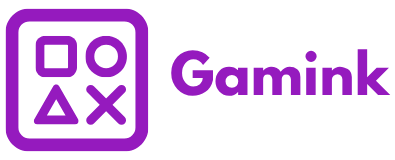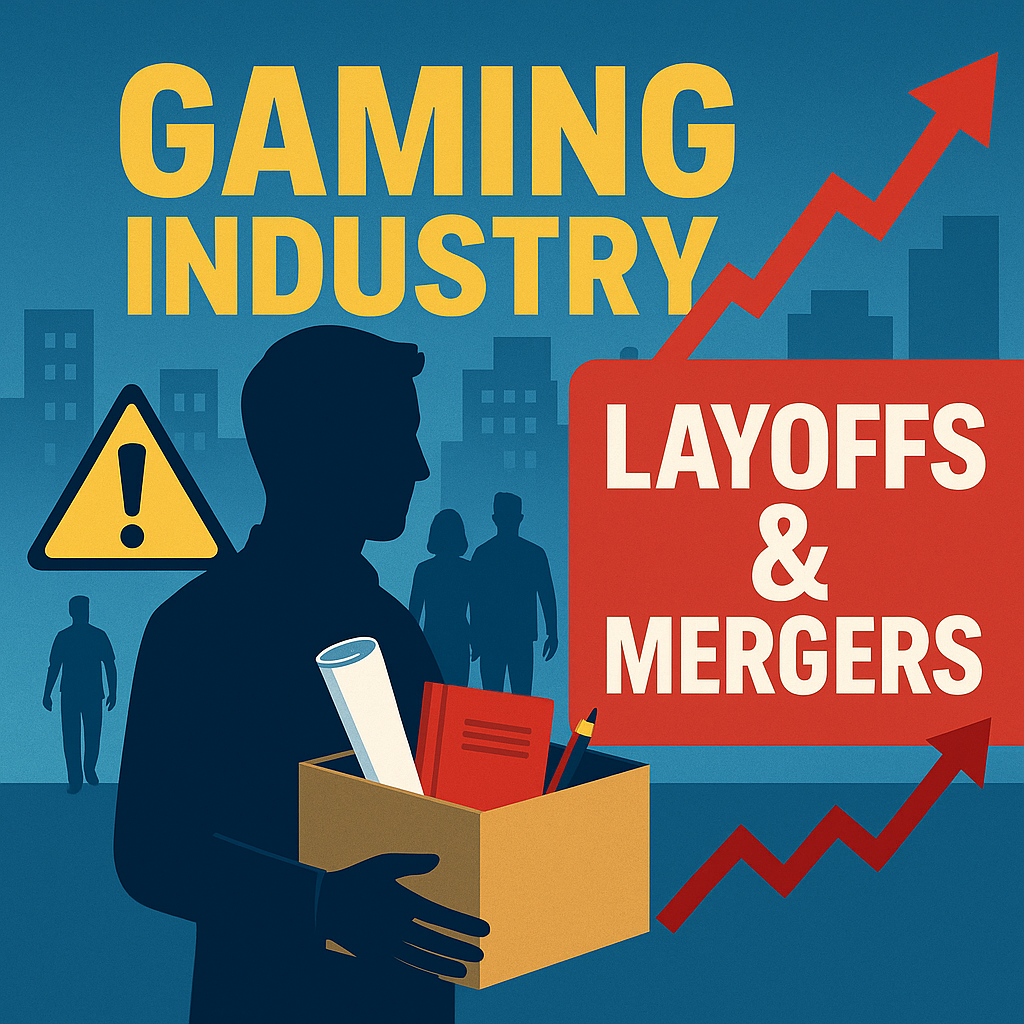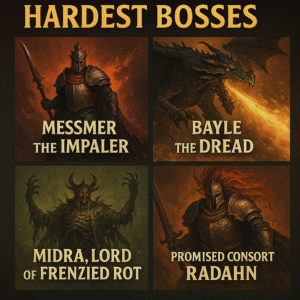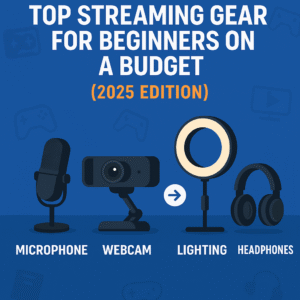2025 has been a rollercoaster year for the gaming world—not because of new releases or next-gen tech, but because of something far more sobering: a wave of layoffs and studio mergers reshaping the industry.
From massive publishers like Microsoft and Embracer Group, to once-untouchable developers like Bungie and BioWare, companies are slashing jobs, consolidating teams, and rethinking their long-term strategies. If you’ve been asking, “Why is this happening now?”, you’re not alone.
In this blog, we’ll break it down in plain language:
-
Why are layoffs hitting the gaming industry so hard?
-
What’s fuelling the surge in studio mergers?
-
How will this affect game development and us—the players?
Let’s dive into the state of the gaming industry in 2025.
1. Layoffs in Gaming: A Worrying Trend
It started slowly in 2023 and accelerated in 2024, but by mid-2025, the trend has become impossible to ignore: thousands of developers are being laid off across studios, both big and small.
Major Layoff Events (2024–2025):
-
Microsoft/Xbox: Let go of over 2,000 employees across Activision Blizzard and ZeniMax post-merger.
-
Riot Games: Cut 11% of its workforce despite continued League of Legends success.
-
Unity: Multiple rounds of layoffs after pricing model backlash.
-
Telltale Games: Reduced staff again amid development delays.
-
BioWare: Downsized to restructure for a leaner Mass Effect/Dreadwolf future.
Even indie studios haven’t been spared, especially those reliant on publisher funding or struggling post-pandemic.
2. Why Is This Happening?
There’s no single cause—but rather a mix of economic pressures, changing player behaviour, and corporate overreach.
A. Over hiring During the Pandemic
From 2020–2022, demand for games skyrocketed due to lockdowns. Studios bulked up hiring to meet that demand, assuming the trend would continue. But once life normalized, the boom fizzled—and now companies are cutting excess headcount.
B. Game Budgets Are Out of Control
Modern AAA games take 5–7 years to build and cost upwards of $150–$300 million. When even a hit game can’t guarantee ROI (Return on Investment), studios panic. Layoffs and cancelling unannounced projects become easy ways to balance books.
C. Corporate Mergers and Restructuring
Mergers are messy. After Microsoft’s acquisition of Activision Blizzard, for example, redundant departments, conflicting roles, and shifting priorities led to inevitable layoffs.
3. Studio Mergers: Reshaping the Gaming Map
As layoffs rise, so do studio consolidations. Publishers are merging small to mid-size studios into larger umbrella teams to cut costs and “streamline creativity.”
Major Mergers in 2025:
-
Microsoft merges Arkane Austin into id Software after Redfall underperformed.
-
EA consolidates BioWare and Motive into a new “Narrative Division.”
-
Sony folds smaller VR and mobile teams into Naughty Dog and Guerrilla.
-
Embracer sells off multiple IPs and merges surviving studios into fewer centralized locations.
On paper, these moves are about efficiency. In reality, they often dilute creative identity, demoralize teams, and delay projects.
When two studios with different workflows merge, culture clashes and role redundancies are inevitable.
4. How It Affects Developers
Behind every headline is a person—a developer, an artist, a writer—losing not just a job, but potentially their passion.
Key Impacts:
-
Mental health challenges as developers face job insecurity and burnout
-
Creative risks decrease, as studios become more risk-averse post-layoffs
-
Remote roles drying up, forcing relocation or career changes
-
Mass migration to indie or solo dev, as former AAA staff look to create passion projects
Industry voices like Jason Schreier (Bloomberg) and YouTube creators like Skill Up and Noclip have been vocal about the “corporate-first” direction the industry seems to be heading.
5. How It Affects Gamers
You might wonder—“What does this mean for me?” As a player, it’s not just about developer layoffs or finance restructuring. It directly affects the quality and frequency of games.
What Gamers Can Expect:
-
Longer development cycles as teams shrink and priorities shift
-
Fewer mid-budget games, with publishers focusing on either massive blockbusters or microtransaction-heavy titles
-
Sequel-heavy slates, as new IPs are considered too risky
-
Live service games shutting down, especially those that never reached critical mass
And perhaps worst of all: beloved franchises may stall or disappear if the team behind them is let go or merged into a new direction.
6. Not All Doom and Gloom: Signs of Hope
While 2025 has been rough, it’s not entirely bleak. Some bright spots give hope for a more balanced future.
A. The Indie Boom 2.0
Laid-off developers are forming new indie studios, and crowdfunding is helping smaller voices get heard. Games like Hades II, Dread Delusion, and Pine Hearts show that innovation is alive outside the AAA bubble.
B. Unionization and Advocacy
Movements like Game Workers Unite and recent labour actions at Activision and ZeniMax have sparked union conversations across the U.S. and Europe. Slowly, devs are fighting back for stability and fairness.
C. Transparency from Gamers
Players are becoming more aware of how the industry works. Public support for laid-off devs, donation drives, and social media awareness are making a difference.
7. What Needs to Change?
If the industry wants to avoid another talent drain or morale collapse, several things need to change:
-
Sustainable budgets: Not every game needs a $300M budget and 6-year dev cycle.
-
Creative freedom for teams: Let devs build new IPs without constant interference.
-
Less focus on quarterly profit, more on long-term fan trust.
-
Transparency with workers: No more surprise layoffs or broken promises.
Final Thoughts
2025 will be remembered as a turbulent year for the gaming industry—but possibly one that forces necessary evolution. Layoffs and mergers are painful, yes. But they’re also an opportunity for a reset.
If publishers can find a balance between profit and people—and if gamers continue to support devs beyond just the blockbusters—we might come out the other side with an industry that’s not just bigger, but better.
Stay Updated
💬 What do you think about the current state of the gaming industry?
📩 Subscribe to our newsletter for honest takes, deep dives, and news you actually care about.
Written by Gamink | July 2025





